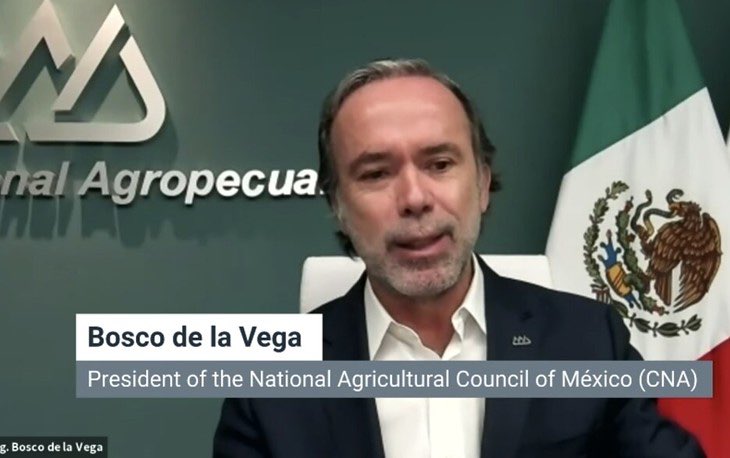The COVID-19 pandemic has presented serious challenges for Latin American agriculture and trade—and while the agrifood industry has proved resilient, broad coordination across the hemisphere will be necessary going forward to ensure recovery. A Nov. 23 virtual policy seminar organized by IFPRI, the Inter-American Institute for Cooperation on Agriculture (IICA) and the International Institute for Sustainable Development (IISD) explored the prospects for long-term recovery and resilience.
Latin America is the world’s principal net food exporting region and plays a key role in global food security. A key priority is aligning countries’ production schemes to include the issues of environmental sustainability and food safety. Latin America is also part of the global marketplace, and so must keep an eye on this role. It must also assess the impacts of COVID-19 in the agrifood sector and the effects of trade and protectionist tensions in recent years.
Resilience in agriculture
Participants agreed that the agrifood chain has continued to work effectively through the crisis despite trade barriers, sanitary restrictions, and trade instability.
“In agriculture we have experienced a small slowdown in growth, but in general the impact has not been significant. In contrast, the Mexican Gross Domestic Product (GDP) has fallen by about 10% and there are already 10 million people in food insecurity,” said Bosco de la Vega, president of the National Agricultural Council of Mexico (CNA). “This positive response from agriculture lies in the value chain that has been built in Mexico, where the entire sector participated in a round table to protect the supply chain and technology has played a leading role.”
Mexico saw its food exports rise 2.7% from Jan.-Sept. 2020 compared to the same period in 2019, while In Brazil that figure is 5%.
Flavio Bettarello, Secretary of Trade and International Relations of the Ministry of Agriculture, Livestock and Supply of Brazil (MAPA), said it is necessary to “take advantage of the current positive conditions to generate fair trade conditions and to bring these benefits on a global scale, because the region It is certainly going to increase its food production, but it must do so in a sustainable way.”
Although food availability has been growing, said Costa Rica Ambassador to the World Trade Organization (WTO), Gloria Abraham Peralta, “with the pandemic, food vulnerability has increased and today we have more than 600 million hungry people in the world.”
“Agriculture passed the test, it is on its feet and the food supply is increasing in a worrying social context, in the face of great and numerous challenges,” said IICA Director General Manuel Otero.
The role of digitization and investment
Looking to the future, digital agriculture has a very important role to play during and after the pandemic, participants agreed. Technology can help create a bridge between urban and rural areas, and empower farmers, especially women and youth, to close gaps in productivity and foster greater sustainability. Latin American countries must make an effort to take advantage of the opportunities that digital agriculture can offer as part of the current agricultural evolution, participants agreed.
Interest in a hemispheric response
Latin America has been deemed the world’s great source of food due to the availability of arable land; however, there are still many pending challenges and a coordinated response involving all stakeholders is required, participants said.
“The nations of the region were a third of the signatory countries in the creation of the WTO,” said Eugenio Diaz Bonilla, head of IFPRI’s Latin America and Caribbean program. “Today we are very divided, we have to recover the hemispheric collaboration that we had in the past. This will be essential to continue forward since—although agriculture has been very resilient—some of the simulations show a delayed effect of the pandemic due to the drop in demand after the fall in people’s income.”
Otero emphasized the need to increase the connectivity of rural areas. It’s essential “to support the standardization of sanitary and phytosanitary measures, strengthen the capacities of strategic partners, strengthen and expedite trade at the borders, work on governance and strengthen the capacities of strategic partners such as the ministries of agriculture and monitoring systems,” he said.
One serious challenge is public policies that focus on addressing temporary problems instead of incorporating strong structural responses.
“We have not thought in the medium and long term because we work in the present moment. It is necessary to generate long-term public policies that promote the sustainable growth of the sector. This will have a very positive impact on food security and the development of the sector,” said Abraham Peralta.
The importance of a multilateral system with clear rules
It is important to define clear, predictable, and transparent rules, Abraham Peralta said, and to take into account that global trade in agrifood products has multiplied to $1.5 trillion globally, according to WTO data—an important piece of information to consider for decision making.
At the multilateral level, it’s key to define the global norms that best facilitate commercial exchange, particularly in the agrifood sector, and to ensure that no restrictions on exports are adopted (such as the temporary measures taken at the beginning of the pandemic), Nor should countries adopt restrictions such as technical barriers to trade and sanitary measures.
At the national level, public policies should take a long-term perspective promoting the agrifood sector’s growth and development—based on competitiveness, inclusiveness, and modernization of environmentally-friendly activities.
Given Latin America’s key role in global food security and nutritional issues, Bettarello and Otero agreed, the great challenge will be to find the best way to allocate its resources in innovative ways that achieve a balance between food safety and environmental sustainability.
Adriana Campos is a Trade Specialist with IICA’s Directorate of Technical Cooperation; Jonathan Hepburn is a Senior Policy Advisor with IISD’s Economic Law and Policy Program; Valeria Piñeiro is a Senior Research Coordinator with IFPRI’s Markets, Trade and Institutions Division.







